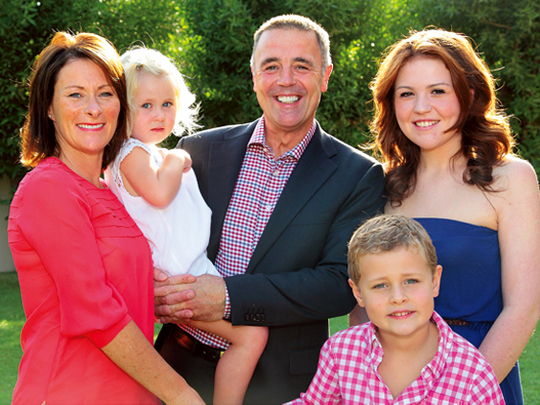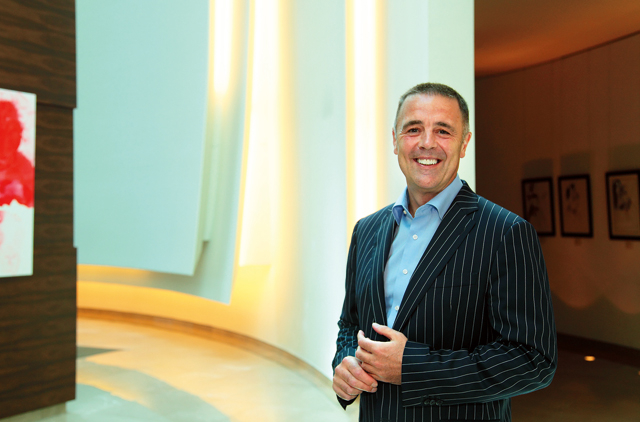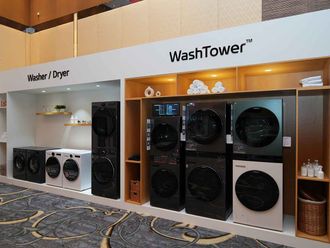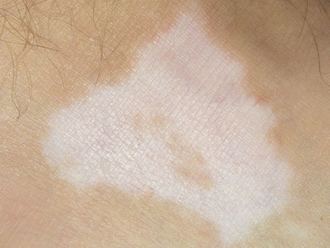
Simon Frith gets up at 5.30am every day and sets off on a 20km bike ride. Or a 5km run. Or a 250m swim. It's the variety of activity that made the triathlon his sport of choice. "I am very, very competitive," says the managing director of Al Futtaim Motors. He drove the company, which has represented the Toyota Motor Corporation in the UAE since 1955, to the position of market leader in the UAE automotive industry today. Simon, 51, is well suited to both his sport and his profession - he was in the Royal Marines for nine years, before he decided to go back to college to study accountancy. He cut his teeth developing the Toyota and Lexus brands in the UK for 14 years before moving to Dubai.
Work
I started triathloning when I was almost 40; a bit late in the day, but I'd done hard physical training during the nine years I was in the Royal Marines. Triathlon is made up of three sports - running, swimming and cycling. Life is a lot like triathloning - you have to be fit to get through the different hurdles it throws at you.
Part of the reason why I chose triathlon was to beat the boredom of regular training schedules. Here, I've got swimming, running and cycling so if I don't feel like running one day, I go swimming, or try cycling. It's a personal challenge, getting the timing right. There are a lot of similarities between triathlon training and my work. The competitive element has always been part of my business make-up, and it can be both good and bad. Competition can sometimes drive you to do short-term things, and in a business that is not always good. A short-term win might not necessarily get you what you want in the long term. The way I deal with that is to let my team know how competitive I am and my honesty in sharing that allows them to keep me on track.
I am a big team player. We try to create an environment that lets people flourish. It's about getting the best out of everybody, batting around ideas and picking the best ones irrespective of who they come from. That, I believe, is what guarantees success.
We have over 200 teams in Al Futtaim Motors and they discuss what they'd like to change in terms of making the working environment better for them and their customers. That's how change comes about. It's not just about winning but about creating a company that's long-lasting, recognised for performance and delivery, looking after its customers, and has a heritage, something to pass on to the next group of leaders.
Success is also about how you are able to adapt to situations. We have what are called ‘transitions' in triathlons, timed breaks between the sports. They are very important. The effectiveness of the transitions determines whether you sail through to the next bit, and that's the way we move in business too.
Things change - when I first arrived there was a huge demand in the markets, customers would come to us. It's not the same anymore. We've had to change our business model. It's not just about the product any more, it's about the service, the back-up. We've had to invest more heavily in training, and development, particularly leadership development. The returns have been huge for us.
Play
I come from a working-class family from Spalding, a small town about 160km north of London. It was a great childhood, very carefree. I went to the local grammar school. I wasn't a great scholar, but I did well in sports - I used to play hockey, cricket, rugby, basketball, football and athletics. I didn't want to do A-levels as I had a dream about being in the military. My dad was fine with it, but my mum wanted me to complete school. But I joined the Marines at 17. It brought me into contact with different people, from different walks of life. It increased my confidence level, it grew my decision-making skills. I came back a very different person, a better person certainly. My mum forgave me when she saw the change! Between 17 and 27 I travelled all over the world.
I did my A levels in the last year I was in the military. After I quit I went to university, studying business finance and economics. I qualified as an accountant. But I'd always been inclined to marketing so that's where I started my career.
My father was a big influence when I was growing up. He died three years ago. He was a great man, very caring. He never told me what to do, but pointed me in the right direction. He shaped the way I think now. My wife and I are a great team, though we are very different. She's more open and engaging. She's the one who gets us going. She's incredibly patient.
I have four children, from ages 19 to three. Parenthood changes you - it makes you less selfish. Children also give you a younger spirit. They see things so differently from adults. It reminds you to occasionally lighten up and see things from their viewpoint - look for simple solutions. I draw energy from my children.
Dream
I believe in the Eastern concepts of destiny and dreams. Strangely enough I never dream at night. I always have a part of the day when I daydream about the future, my family, my work. Everybody must have dreams about their future, otherwise what's there to live for? You're nothing if you don't have dreams. Joining the Marines was a dream. Getting married in Italy was a dream. They are like pictures whirring away in the back of my mind, and then you bring them forward into reality. My dreams now are for my children, their future and how I can support them in realising their dreams. For me, it's always been about making a difference, leaving the world a better place - just the day- to-day things, the way you work, interact with people. I would like to pass on my skills - not for profit, but as giving back to society.













